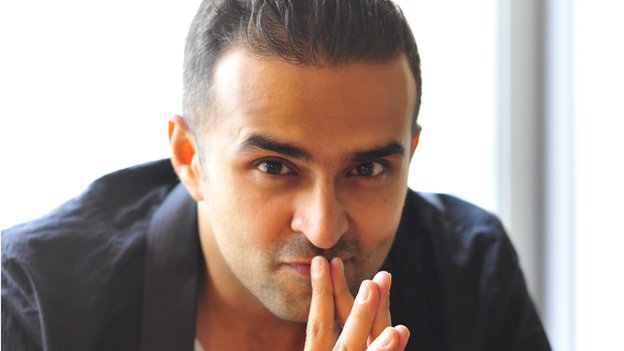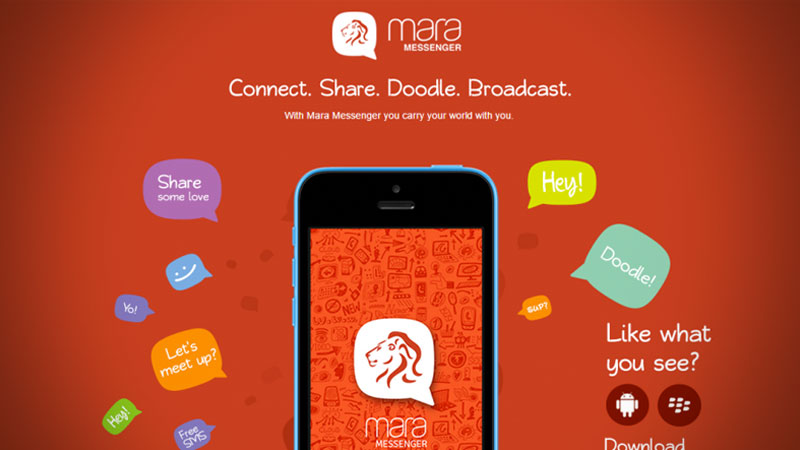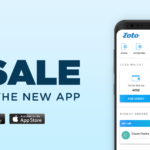The Mara Group recently released Mara Messenger, a free chat app designed for the African market. Mara is headed by Ugandan billionaire Ashish J. Thakkar, the devilishly handsome businessman and media darling that has graced the covers of many magazines over the course of the year.

Mara Messenger, available on Android and BlackBerry, is a pretty app and even though its first release was unbelievably buggy, it has become a much better experience after 2 updates. It touts “innovative features” to help it capture market share – including the ability to send free SMS to any number in Nigeria, whether they have Mara Messenger installed or not. However, they aren’t exactly attacking a virgin market.
Africa’s internet adoption story is also a chat app adoption story. From the near-ubiquitous Whatsapp to the behemoth that is Facebook Messenger with 200 million monthly active users globally, entering the chat market is not for the faint at heart. They also have to deal with 2go, an app that has defied all logic and grown to over 10 million users without any marketing. Once only available on feature phones, 2go has responded to Africa’s smartphone adoption very well. Marc Henson at 2go told TechCabal that smartphones now account for 20% of their user base. Furthermore, 2go is keeping to it’s scrappy roots by ensuring that the app’s download size remains small to conserve user data – it’s currently less than 3MB, almost 10 times smaller than WeChat.

Speaking of WeChat, the Chinese behemoth seems to have struggled to gain wide, organic acceptance in Nigeria in spite of a robust marketing campaign. That’s not to say that WeChat is to be counted out; between Naspers’ backing and the gargantuan revenues it generates in China, there’s more than enough capital to mount a successful challenge of Africa’s chat market.
What is “Africa’s chat market” anyway? Apart from 2go that is monetizing via advertising, none of the other players seem to have a business model. However, the prevailing thesis seems to be that chat will be a huge deal. Young people in the West currently spend more time in chat apps than any other type of applications; and even though the same research has not been done in Africa, anecdotal evidence suggests that this is also the case. As a result, chat apps are beginning to see a slew of commerce and banking functions within the chat window.

Asia is absolutely leading the way in this department. Japanese chat app Line generated $338 million in 2013 from sales of stickers and in-game purchases. It is estimated that about $103.3 billion will be spent on mobile commerce in China this year. Last year, Xiaomi sold 150,000 smartphones in under 10 minutes using WeChat alone. Perhaps this gives you a better idea why WeChat isn’t about to give up on Nigeria any time soon. With its fellow Naspers investee Konga, they could go ahead to create a new mobile commerce opportunity.
However, the West is catching up. Yesterday, Snapchat announced a partnership with Square called Snapcash that would allow Snapchat users send money to each other via Snapchat. It was also recently revealed that Facebook Messenger contains hidden code that would allow users of the app make friend-to-friend payments from within the app, perhaps explaining why Facebook has been forcing users to download the app.

In light of all this, the question becomes “how does the Mara Group plan to play here?” The answer may lie in Mara’s other investments. Mara Group is a part-owner of Atlas Mara, a financial services holding company created by a partnership with former Barclays executive Bob Diamond’s Atlas Investment. Atlas Mara in turn owns just under 30% of Union Bank [paywall], an old Nigerian bank they’ve been quietly rebranding and retooling for the 21st century. But playing catch up (especially in the consumer market) might be difficult for Union Bank. Perhaps the best option might be to leapfrog the competition. That’s where Mara Messenger could come in. With a chat app in one hand and a banking license in the other, they could conceivably dispense some financial services via mobile including lending, commerce and basic banking.
Of course, first of all they’d need to get Africans to use the app. Let’s see how that goes.



















